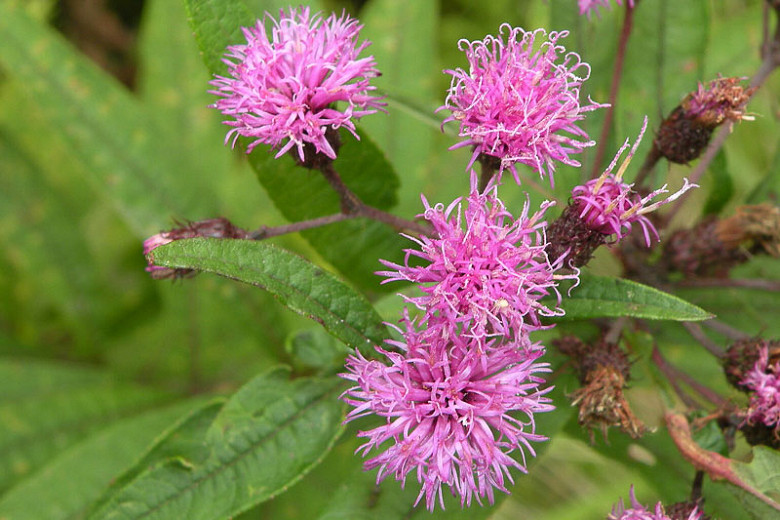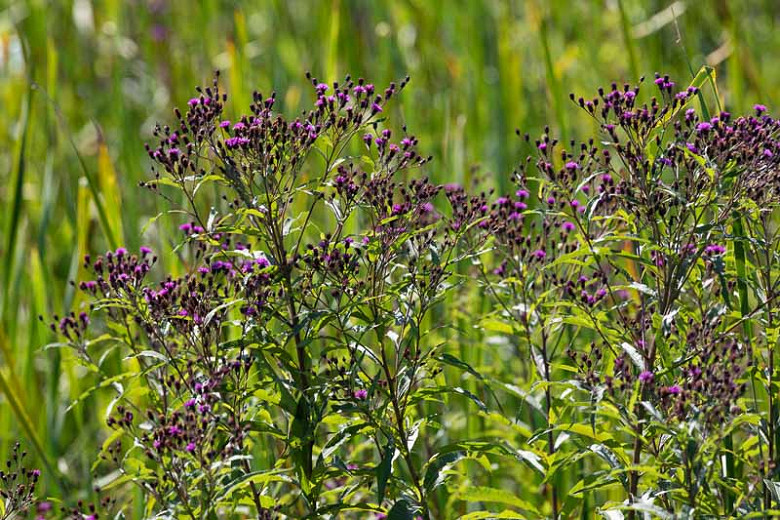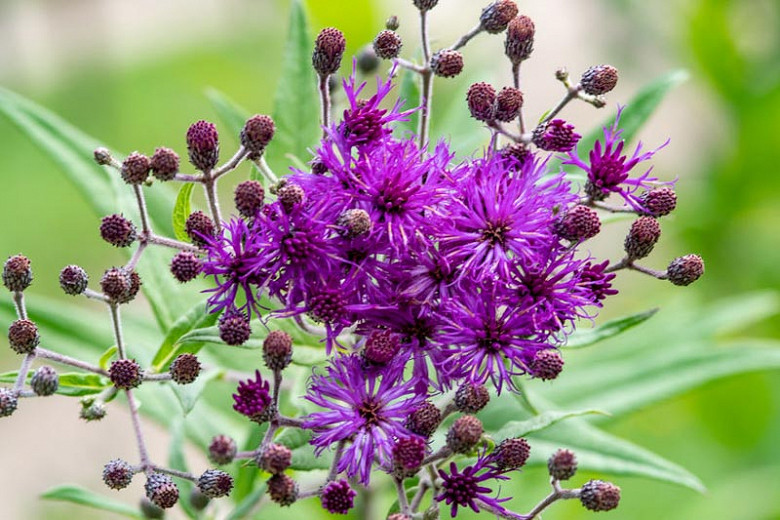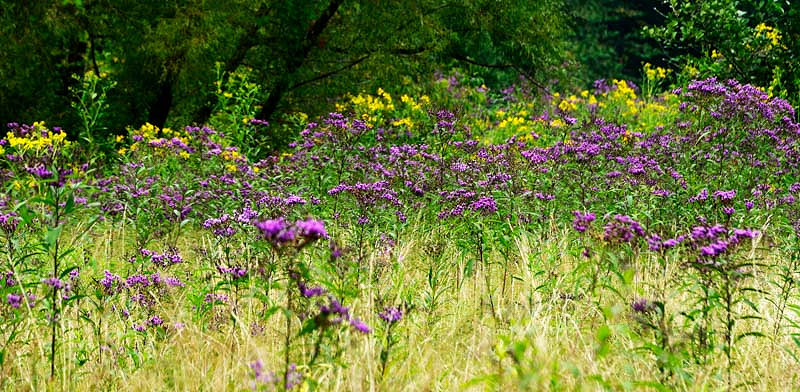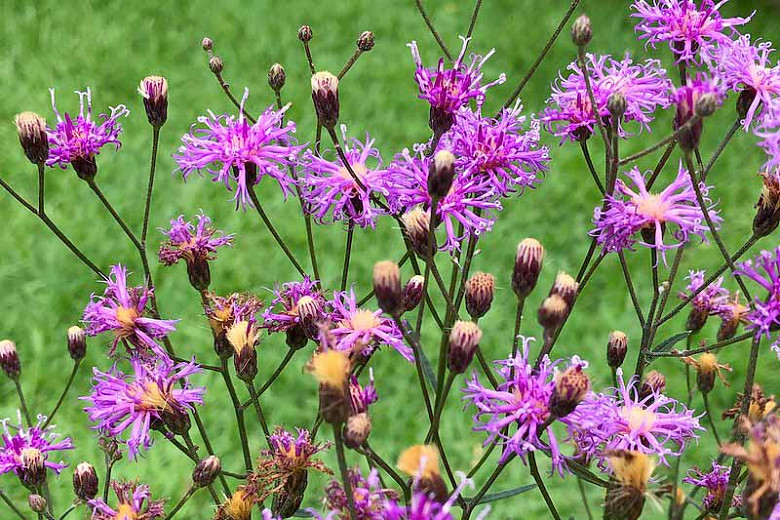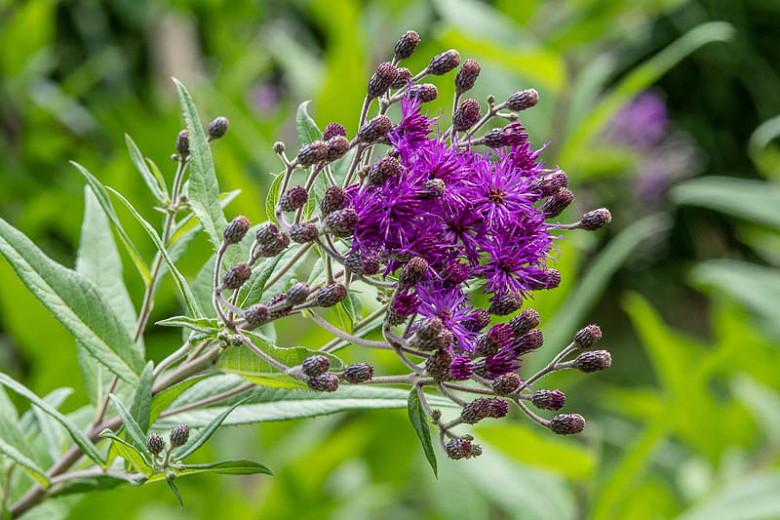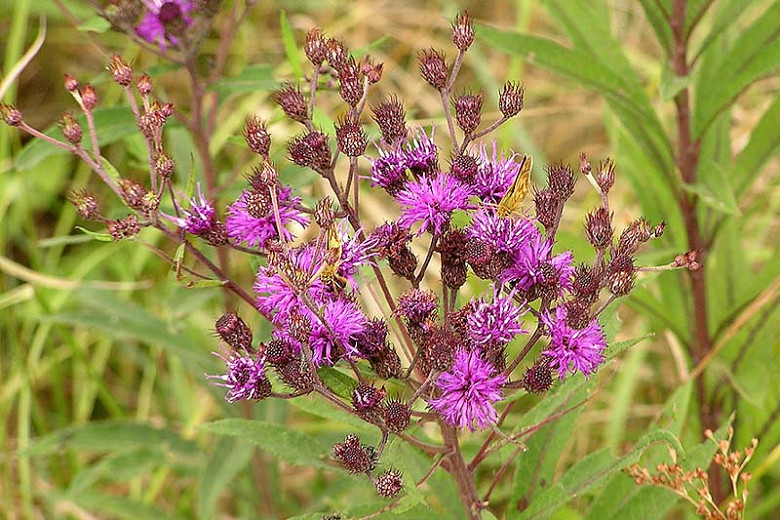Vernonia noveboracensis (New York Ironweed)
A splendid and robust garden plant, Vernonia noveboracensis (New York Ironweed) is a tall, clump-forming perennial boasting loosely branched clusters, 3-4 in. across (7-10 cm), of tiny, fluffy, intense purple, finely petaled flowers in late summer and early fall. Each glorious flower head may consist of up to 30-50 flowers.
A splendid and robust garden plant, Vernonia noveboracensis (New York Ironweed) is a tall, clump-forming perennial boasting loosely branched clusters, 3-4 in. across (7-10 cm), of tiny, fluffy, intense purple, finely petaled flowers in late summer and early fall. Each glorious flower head may consist of up to 30-50 flowers. Attractive to butterflies, the blossoms are borne atop stiff, upright stems carrying lance-shaped, deep green leaves. They give way to fluffy, rusty seed clusters that are devoured by hungry birds. As a tall, narrow plant, New York Ironweed is suited for the back of the border or tight spaces and grows well in the native meadow garden.
- Grows up to 4-6 ft. tall (120-180 cm) and 3-4 ft. wide (90-120 cm).
- Performs best in full sun in average, medium to wet soils. Tolerates a wide range of soils, including clay, but prefers rich, moist, slightly acidic soils. It will flourish in regular or dry soil too.
- Excellent choice for beds and border, cottage gardens, bog gardens, rain gardens, wildflower gardens, prairies and meadows.
- No serious pest or disease issues. Deer resistant.
- Deadhead regularly to prolong flowering and avoid unwanted self-seeding.
- Propagate by seed, division or softwood cuttings.
- Native to eastern North America.
Requirements
| Hardiness | 5 – 9 |
|---|---|
| Plant Type | Perennials |
| Plant Family | Vernonia – Ironweeds |
| Exposure | Full Sun |
| Season of Interest | Summer (Late)Fall |
| Height | 4' – 6' (120cm – 180cm) |
| Spread | 3' – 4' (90cm – 120cm) |
| Spacing | 36″ – 48″ (90cm – 120cm) |
| Water Needs | Low, Average, High |
| Maintenance | Low |
| Soil Type | Chalk, Clay, Loam |
| Soil pH | Acid, Alkaline, Neutral |
| Soil Drainage | Moist but Well-Drained, Poorly Drained, Well-Drained |
| Characteristics | Showy |
| Native Plants | United States, Midwest, Ohio, Northeast, Connecticut, Delaware, Massachusetts, Maryland, New Hampshire, New Jersey, New York, Pennsylvania, Rhode Island, Southeast, Alabama, Florida, Georgia, Kentucky, North Carolina, South Carolina, Tennessee, Virginia, West Virginia |
| Tolerance | Clay Soil, Deer, Wet Soil |
| Attracts | Birds, Butterflies |
| Garden Uses | Beds and Borders, Bog Gardens, Ponds and Streams, Rain Gardens |
| Garden Styles | Informal and Cottage, Prairie and Meadow |
